Air source heat pumps stand out for their efficiency, surpassing traditional heating and cooling systems by offering both functionalities in one unit. If you’re considering replacing an outdated HVAC system, switching to a Mitsubishi air source heat pump could enhance your home’s energy efficiency and lower overall utility expenses. Additionally, depending on your location, you might qualify for further rebates and incentives. (Bonus: If you’re using solar energy, Mitsubishi heat pumps can leverage solar power to regulate your home’s temperature!)
Since its entry into the HVAC industry in 1980, Mitsubishi Electric has established itself as a leading innovator in heat pump technology. Notably, their M-SERIES, which is the top-selling ductless product in the United States, features a range of both indoor and outdoor units designed to accommodate any home setup, whether ducted or ductless. Mitsubishi provides a spectrum of heat pump models to suit various budgets, categorized into good, better, and best options to ensure every homeowner finds a fit that meets their needs.
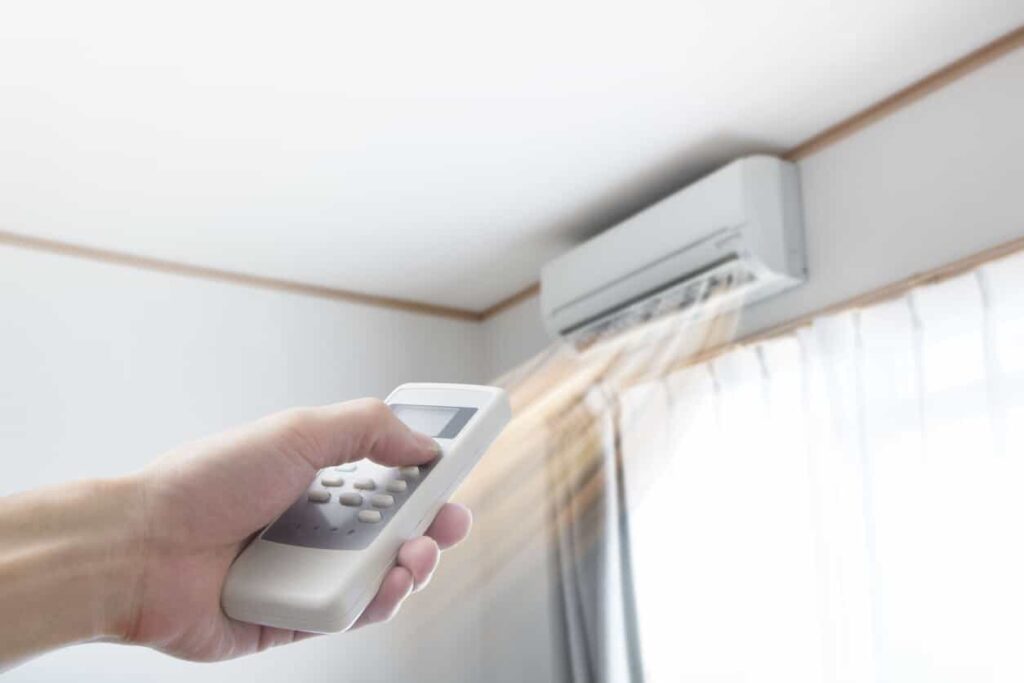
How do Mitsubishi heat pump systems operate?
Mitsubishi Electric stands at the forefront of climate control innovation with its advanced heat pump systems. These systems harness cutting-edge technology to deliver year-round comfort through smart energy transfer processes, effectively heating or cooling your indoor environments as needed.
Much like a refrigerator operates in reverse, Mitsubishi heat pumps draw heat from the outside air—even during colder weather—and channel it indoors. Conversely, in warmer months, these systems reverse the flow, removing heat from inside your home to cool it, making them exceptionally efficient for varying seasonal demands.
Mitsubishi’s heat pumps are tailored to meet a diverse array of customer needs and financial plans. Their extensive lineup includes both ducted and ductless options:
- Ducted Systems: Ideal for new constructions or homes with existing ductwork, these systems use a network of ducts to evenly distribute air throughout the building.
- Ductless Systems: Best suited for homes lacking ductwork or for new room additions, featuring an outdoor unit connected to one or more indoor units that directly manage air distribution to specific zones.
Each indoor unit model is designed to blend seamlessly with different home or office decors:
- Wall-Mounted Units: Known for their quiet operation and efficiency, these are commonly selected for general residential use.
- Ceiling Cassettes: Optimal for areas with limited wall space.
- Floor-Mounted Units: Ideal for rooms with extensive glass installations or limited wall space.
- Ducted Air Handlers: These can be integrated into your building’s architecture, hidden from view, to provide discreet air conditioning.
- Horizontal-Ducted Units: Perfect for locations with low ceiling clearance.
Mitsubishi also provides versatile configurations to suit specific needs:
- Single-Zone Systems: Comprising one indoor and one outdoor unit, these are perfect for targeting a single area or room.
- Multi-Zone Systems: Capable of connecting up to eight indoor units to one outdoor unit, each unit can be controlled independently to meet different climate needs across multiple rooms or spaces.
In summary, Mitsubishi heat pumps exemplify superior heat transfer technology for efficient and effective heating and cooling solutions. With their broad range of products, Mitsubishi ensures that every customer can find an ideal system to meet their unique comfort requirements and budget.
Mini splits (ductless heat pump units)
Mini splits, or ductless heat pump units by Mitsubishi Electric, represent a pinnacle of flexibility and energy efficiency in heating and cooling solutions. Distinct from traditional HVAC systems that rely on extensive ductwork, Mitsubishi mini splits deliver conditioned air directly to specified zones. This makes them ideal for properties lacking ductwork, such as older homes, room additions, or any area requiring additional climate control.
Mini splits operate on heat transfer principles, featuring an outdoor unit that contains the compressor and condenser, and one or more indoor units responsible for air handling. These components are connected by a conduit that encases the power cable, refrigerant tubing, suction tubing, and condensate drain, facilitating efficient thermal exchange between indoor and outdoor environments.
Whether heating during the winter or cooling in the summer, the mini split system adapts by extracting heat from the external air to warm interiors, or inversely, removing indoor heat to cool the environment. This dual functionality ensures year-round comfort with remarkable efficiency.
A standout attribute of Mitsubishi mini splits is their zoning capability. Each indoor unit operates independently, allowing for customized temperature settings across different rooms. This not only personalizes comfort but also enhances overall energy efficiency, as temperatures in unoccupied zones can be adjusted to conserve energy.
Mitsubishi Electric is at the forefront of cooling and heating technology, offering an extensive array of mini split systems that cater to diverse needs and budgets. The product lineup includes wall-mounted, ceiling cassette, floor-mounted, and horizontal-ducted models, each equipped with inverter technology. This advanced feature enables the compressor to dynamically adjust its speed based on the precise demands for heating or cooling, further optimizing energy use and enhancing user comfort.
In conclusion, Mitsubishi mini splits are an exemplary choice for anyone seeking a sophisticated, adaptable, and energy-efficient heating and cooling solution. With a wide range of options designed for both residential and commercial settings, Mitsubishi ensures that every user can find the perfect system to meet their specific needs and preferences.
Short-run ducted heat pumps
Short-run ducted heat pumps are a versatile heating and cooling solution designed to provide a comfortable climate in your home or office. They strike a balance between traditional ducted systems and ductless mini split units, offering the flexibility of the latter and the widespread airflow of the former. This makes them ideal for spaces where a ductless system may not be sufficient, but a full-scale ducted system is not feasible due to space or cost considerations.
Just like other heat pumps, short-run ducted heat pumps operate based on the principles of heat transfer. They extract heat from the outdoor air and transfer it indoors during colder months, and reverse this process in the summer, providing efficient cooling. The key difference lies in the way they distribute this conditioned air.
Short-run ducted heat pumps consist of an outdoor unit housing the compressor and condenser, and an indoor unit containing the air handling components. The indoor unit is connected to a small network of ducts, typically serving a few rooms. This setup is perfect for homes or businesses that have a compact layout or want to heat or cool specific zones.
One of the advantages of short-run ducted heat pumps is their ability to provide a consistent temperature throughout the serviced zones, eliminating cold or hot spots. The ductwork allows the conditioned air to be distributed evenly throughout the rooms.
Mitsubishi Electric offers a range of short-run ducted heat pumps designed to cater to various needs and budgets. Their systems are equipped with advanced inverter technology, which allows the compressor to adjust its speed to precisely meet the heating or cooling demands, enhancing both comfort and energy efficiency. These systems can be discreetly installed in your building’s structure, providing efficient heating and cooling without impacting the aesthetics of your space.
In conclusion, short-run ducted heat pumps are an excellent solution for those seeking the widespread airflow of a ducted system but require a more compact or cost-effective solution. They offer the benefits of zone control, consistent temperatures, and high energy efficiency, making them a popular choice for many homeowners and businesses.
Ducted Heat Pumps
Ducted heat pumps, also known as central heat pumps, are comprehensive heating and cooling systems designed to provide whole-house or whole-building climate control. They are particularly well-suited for new constructions, larger homes, or existing properties with ductwork in place.
Like other heat pump systems, ducted heat pumps operate based on the principles of heat transfer. They consist of an outdoor unit, which contains the compressor and the condenser, and an indoor air handling unit. The indoor unit is connected to a network of ducts that run throughout the building. During colder months, the system extracts heat from the outdoor air and transfers it indoors, distributing it through the ducts to heat the building. Conversely, in warmer months, it extracts heat from the indoor air and transfers it outdoors, effectively cooling the building.
The primary advantage of ducted heat pumps is their ability to provide consistent heating or cooling across a large area. They can maintain a uniform temperature throughout the building, creating a comfortable and consistent climate in every room. This makes them particularly attractive for larger homes or buildings where maintaining a consistent temperature across multiple rooms or zones is a priority.
Mitsubishi Electric, a leader in heating and cooling technology, offers a range of ducted heat pump systems designed to cater to various needs and budgets. Their systems are equipped with advanced inverter technology, which allows the system to adjust its operation to precisely meet the heating or cooling demands of the building. This not only enhances comfort but also improves energy efficiency, as the system operates at the minimum necessary level, reducing energy waste.
Moreover, Mitsubishi’s ducted heat pumps can be seamlessly integrated into your building’s structure. The indoor unit and ductwork can be concealed within the ceiling or walls, providing efficient heating and cooling without affecting the aesthetics of your space.
In summary, ducted heat pumps are an excellent solution for those seeking comprehensive and consistent heating and cooling across larger spaces. They offer the benefits of uniform temperature control, high energy efficiency, and seamless integration into your building’s structure, making them a popular choice for many homeowners and businesses.
Single Zone vs Multi-Zoned
Mitsubishi Electric, a leader in heating and cooling solutions, offers both single-zone and multi-zone systems to cater to a wide range of customer needs. Understanding the operation and benefits of each can help you make an informed decision about the best system for your home or office.
Single-Zone Systems
Single-zone systems, also known as single-zone mini splits, consist of one indoor unit connected to one outdoor unit. They are designed to provide heating or cooling to one specific area or “zone” in a building. This could be a single room, a garage, a home office, or any other isolated space that requires individual temperature control.
The operation of single-zone systems is based on the principles of heat transfer, similar to other types of heat pumps. They can extract heat from the outdoor air and transfer it indoors during the colder months, and reverse this process in the summer, providing efficient cooling.
One of the primary advantages of single-zone systems is their cost-effectiveness for heating or cooling a single space. If you have one area that needs temperature control, such as a room addition or a part of the house that isn’t served by the central HVAC system, a single-zone system can be a more economical choice.
Mitsubishi’s single-zone systems feature advanced inverter technology, which allows the system to adjust its operation to meet the precise heating or cooling demands of the space, leading to enhanced comfort and energy efficiency.
Multi-Zone Systems
Multi-zone systems, on the other hand, can connect up to eight indoor units to a single outdoor unit. Each indoor unit can be controlled independently, allowing for different temperature settings in different zones. This is ideal for homes or offices with different heating or cooling requirements in different rooms.
Like single-zone systems, multi-zone systems operate based on the principles of heat transfer. However, their ability to control multiple zones independently makes them more versatile and energy-efficient. You can lower the temperature in unoccupied rooms or adjust the settings according to the specific needs of each room, leading to significant energy savings.
Mitsubishi’s multi-zone systems also feature advanced inverter technology, providing precise temperature control for each zone and enhancing overall energy efficiency.
In conclusion, both single-zone and multi-zone systems have their advantages. The choice between the two depends on your specific needs. If you need to heat or cool a single space, a single-zone system could be the most cost-effective solution. However, if you have multiple rooms or areas with different temperature needs, a multi-zone system can offer greater flexibility and potential energy savings. Mitsubishi Electric offers a wide range of both types of systems, ensuring that you can find the perfect solution for your heating and cooling needs.
Units Outside
Outdoor heat pump units, often referred to as the compressor or condenser units, play a crucial role in the operation of a heat pump system. Whether it’s a single-zone, multi-zone, ducted, or ductless system, the outdoor unit is an essential component that facilitates the heat transfer process, which is at the heart of heat pump operation.
The outdoor unit houses the compressor, which is responsible for pumping the refrigerant through the system. It also contains the condenser coil where heat is either absorbed or released, depending on whether the system is in heating or cooling mode.
In heating mode, the outdoor unit extracts heat from the outside air, even in cold temperatures. The refrigerant absorbs this heat and is then compressed to increase its temperature further. It’s then transported indoors where the heat is released to warm the air.
During cooling mode, the process is reversed. The indoor unit absorbs heat from the indoor air, and the heated refrigerant is then transferred to the outdoor unit. Here, the refrigerant releases the heat to the outside, and the cooled refrigerant is then circulated back to the indoor unit.
Mitsubishi Electric designs outdoor units with advanced technologies to enhance their performance and efficiency. Their units are equipped with inverter-driven compressors, which can adjust their speed to precisely match the heating or cooling demand. This results in significant energy savings and improved comfort.
Furthermore, Mitsubishi outdoor units are built to withstand harsh weather conditions. They have a sturdy construction and are specially coated to resist corrosion and damage from the elements. This ensures their longevity and reliable operation.
Some Mitsubishi outdoor units also feature a defrost cycle to prevent frost build-up during cold weather. This cycle temporarily reverses the operation of the heat pump to melt away the frost, ensuring efficient operation even in freezing conditions.
In summary, the outdoor heat pump unit is a critical component of any heat pump system. It plays a significant role in the heat transfer process, enabling the system to provide efficient heating and cooling. Mitsubishi Electric’s outdoor units are designed with advanced technologies and robust construction to ensure optimal performance, energy efficiency, and durability.
Mitsubishi Heat Pumps Expected Performance
Mitsubishi Electric, a renowned name in heating and cooling solutions, designs its heat pump systems with an emphasis on optimal performance, energy efficiency, and user comfort. The expected performance of Mitsubishi heat pumps is characterized by a few key aspects.
High Efficiency
Mitsubishi heat pumps are recognized for their high energy efficiency. Their systems utilize inverter-driven compressor technology, allowing the units to adjust their performance according to the exact heating or cooling demand. This not only ensures precise temperature control but also leads to significant energy savings, as the system operates at the minimum necessary level, reducing energy waste.
Exceptional Comfort
Mitsubishi heat pumps are designed to deliver exceptional comfort. They offer consistent and uniform heating or cooling, eliminating hot or cold spots in your space. With the multi-zone system, you can set different temperatures for different rooms, ensuring personalized comfort for each member of your household or office.
Quiet Operation
Mitsubishi heat pumps are known for their quiet operation. Both the indoor and outdoor units are designed to operate with minimal noise, contributing to a peaceful indoor environment. This makes them ideal for installations in bedrooms, home offices, or any area where silence is highly valued.
Reliable Performance in Extreme Conditions
Mitsubishi heat pumps are engineered to provide reliable performance even in extreme weather conditions. They can extract heat from the outdoor air in temperatures as low as -13°F for heating, and provide cooling in temperatures reaching up to 115°F. This ensures your comfort throughout the year, no matter the weather outside.
Longevity
Mitsubishi Electric designs its heat pumps with longevity in mind. The systems are built with high-quality materials and components to withstand regular use and harsh weather conditions. With proper maintenance, you can expect your Mitsubishi heat pump to provide reliable heating and cooling for many years.
In conclusion, Mitsubishi heat pumps are expected to deliver high efficiency, exceptional comfort, quiet operation, reliable performance in extreme conditions, and longevity. Their systems are a testament to Mitsubishi Electric’s commitment to quality, innovation, and customer satisfaction.
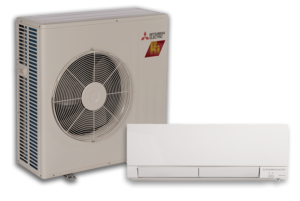
SEER Ratings and A/C Performance
SEER, or Seasonal Energy Efficiency Ratio, is a measure used in the HVAC industry to gauge the energy efficiency of air conditioning units, including heat pumps when they are in cooling mode. It represents the ratio of cooling output over a typical cooling season divided by the energy consumed in watt-hours.
The higher the SEER rating, the more energy-efficient the system is. This means it can provide the same cooling output using less energy compared to a system with a lower SEER rating. Therefore, a higher SEER rating can result in lower energy costs and a reduced environmental impact.
To calculate SEER ratings, the cooling output during a typical cooling season is divided by the total electric energy input during the same period. This calculation is based on a set outdoor temperature range to reflect a typical cooling season.
As of my knowledge cut-off in September 2021, the minimum SEER rating for new air conditioning units in the U.S. is 14, but many modern systems have ratings much higher than this, with some reaching into the 20s or even higher. These higher-efficiency systems often incorporate advanced features such as variable-speed fans and two-stage compressors to reduce energy consumption.
When considering the SEER rating of a system, it’s also important to keep in mind the overall performance of the unit. Factors such as the system’s ability to maintain consistent temperatures, its noise levels, and its longevity can all impact customer satisfaction. A system with a high SEER rating but poor overall performance may not be the best choice.
Mitsubishi Electric air conditioners and heat pumps are known for their high SEER ratings, reflecting their commitment to energy efficiency. These systems also incorporate advanced technologies to deliver reliable and high-quality cooling performance. However, it’s recommended to consult with a professional to choose a system with the right SEER rating that best fits your specific needs and climate.
HSPF Ratings & Heating Performance
HSPF, or Heating Seasonal Performance Factor, is a measure used in the HVAC industry to gauge the energy efficiency of heat pumps when they are in heating mode. It represents the total heating output of a heat pump during a typical heating season, expressed in BTUs (British Thermal Units), divided by the total electricity consumed during the same period, expressed in watt-hours.
Much like the SEER rating for cooling, a higher HSPF rating indicates a more energy-efficient system. In other words, a system with a high HSPF rating can provide the same heating output using less energy compared to a system with a lower HSPF rating. This results in lower energy costs and a reduced environmental footprint.
As of my knowledge cut-off in September 2021, the minimum HSPF rating for new heat pumps in the U.S. is 7.7, but many modern systems have ratings much higher than this. Systems with higher HSPF ratings often incorporate advanced features such as variable-speed fans and two-stage compressors to optimize energy consumption.
When considering the HSPF rating of a system, it’s also important to consider the overall performance and reliability of the unit. Factors such as the system’s ability to maintain consistent temperatures, its noise levels, and its longevity can all impact customer satisfaction. A system with a high HSPF rating but poor overall performance may not be the best choice.
Mitsubishi Electric heat pumps are recognized for their high HSPF ratings, indicating their commitment to energy efficiency. These systems also feature advanced technologies that ensure reliable and high-quality heating performance. However, it’s always recommended to consult with a professional to select a system with the right HSPF rating that best suits your specific needs and climate.
Kumo Cloud App
The Kumo Cloud is a state-of-the-art product from Mitsubishi Electric that brings smart control to your heating and cooling system. Essentially, Kumo Cloud is a wireless control system that allows you to manage your Mitsubishi heat pump system from anywhere using a smartphone, tablet, or computer.
Remote Access and Control
One of the primary benefits of the Kumo Cloud is the ability to remotely control your heat pump system. With the Kumo Cloud app, you can adjust the temperature, switch between heating and cooling modes, and turn your system on or off from anywhere with an internet connection. This feature provides incredible convenience and can help improve energy efficiency by allowing you to adjust your system based on changing conditions or schedules.
Zone Control
If you have a multi-zone system, Kumo Cloud allows you to control each zone independently. You can set different temperatures for different rooms, ensuring personalized comfort for each member of your household or office.
Scheduling
Kumo Cloud also provides the ability to set schedules for your heat pump system. This means you can program your system to automatically adjust the temperature at specific times, such as lowering the temperature at night or raising it just before you come home from work.
Integration with Smart Home Systems
Another advantage of the Kumo Cloud is its compatibility with popular smart home platforms. It can be integrated with platforms like Amazon Alexa, Google Home, and Apple HomeKit, allowing you to control your heat pump system with voice commands.
Alerts and Maintenance Reminders
The Kumo Cloud app can also send alerts and maintenance reminders to help you keep your system running smoothly. It can alert you to any issues with your system and remind you when it’s time for routine maintenance, such as changing the air filter.
In summary, the Kumo Cloud from Mitsubishi Electric is a powerful tool that brings smart control to your heating and cooling system. It offers remote access and control, zone control, scheduling, integration with smart home systems, and alerts and maintenance reminders, making it easier than ever to manage your comfort and energy efficiency.
Do Mitsubishi heat pumps function in cold environments?
Yes, Mitsubishi Electric heat pumps are designed to provide efficient heating even in cold environments. This is a result of Mitsubishi’s advanced technologies that enable their heat pumps to extract heat from the outside air in temperatures as low as -13°F (-25°C) for some models.
This ability to operate efficiently in cold weather is due to Mitsubishi’s use of inverter-driven compressor technology. Traditional heat pumps can struggle in cold temperatures because they operate at a fixed speed and may not be able to extract sufficient heat from the outdoor air. However, Mitsubishi’s inverter technology allows the compressor to adjust its speed based on the heating demand, enabling it to operate more efficiently and extract heat even from very cold air.
Mitsubishi heat pumps also feature a defrost cycle to maintain efficient operation in cold weather. When frost builds up on the outdoor unit’s coil, which can impair the system’s ability to transfer heat, the defrost cycle is initiated. This temporarily reverses the operation of the heat pump to melt away the frost, ensuring the system can continue to operate efficiently.
It’s important to note that while Mitsubishi heat pumps can function in cold environments, the specific performance can vary depending on the exact model and the severity of the cold weather. Therefore, it’s recommended to consult with a HVAC professional to choose the most appropriate heat pump model for your specific climate and heating needs.
In summary, Mitsubishi Electric heat pumps are designed to provide efficient heating even in cold environments, thanks to their advanced inverter-driven compressor technology and defrost cycle. However, the specific performance in cold weather can vary depending on the model and the severity of the conditions.
Mitsubishi’s warranty protections
Any Mitsubishi Electric heat pump system purchased from and installed by a licensed HVAC contractor in the continental United States, Alaska, and Hawaii on or after May 1, 2019, comes with the following warranty to the original owner of the heat pump system: if your heat pump system is installed in a residential single-family home and registered within 90 days of installation, the parts and compressor are covered by a 10-year warranty for as long as they own the system. All components have a five-year guarantee, regardless of registration, and the compressor has a seven-year warranty.
In addition, if you have your Mitsubishi heat pumps installed by a contractor in Mitsubishi’s Diamond Contractor network, the components and compressor warranties are extended to 12 years.
Our friends at Mitsubishi informed us that, with correct maintenance, Mitsubishi heat pumps may last between 20 and 25 years.
Installation and sizing of Mitsubishi heat pumps
Working with a reputable heat pump contractor is essential, not just to guarantee it’s built correctly to optimize your system’s effectiveness, but also to have an expert assist you with the design and size of your system. An oversized system will cost more to install and lower efficiency, while an inadequately sized system will not efficiently heat and cool the property.
Your heat pump contractor will help you calculate how many Mitsubishi heat pumps you need depending on the size of your house and living area, its location, your temperature preferences, and the quality of your insulation.
What is the cost of Mitsubishi heat pumps?
The price of your Mitsubishi heat pump system will rely greatly on the precise Mitsubishi Electric equipment you choose and the system’s size, including the number of interior and outdoor units you need. You may work with your heat pump contractor to determine your exact expenses and any potential rebates or loans in your location. In Massachusetts, for instance, you may often qualify for a loan with no interest (the Mass Save HEAT Loan) and earn rebates on heat pumps.
Mitsubishi and Synchrony collaborate to provide heat pump financing solutions. You must provide your personal information, including the last four digits of your Social Security number and your cell phone number. Synchrony’s application procedure will determine the interest rate, loan amount, and terms.
Is a Mitsubishi heat pump the best option for you?
Mitsubishi is a recognized leader in the heat pump industry. With a variety of choices for ducted and ductless heating and cooling, as well as levels ranging from more economical to premium, you may certainly find a system that meets your requirements and budget. Consult a local contractor to determine which alternatives would work best for you when creating your heat pump system and to determine which Mitsubishi heat pumps may meet your requirements.
How to locate an installer for your Mitsubishi heat pumps
Depending on the size, layout, and personal preferences of your house, you’ll want to consult with a reputable local contractor to guarantee you have a heat pump system of the appropriate size. On their website, you may locate Mitsubishi Diamond heat pump contractors.
What are Mitsubishi heat pumps?
Mitsubishi heat pumps are heating and cooling systems that use advanced technology to efficiently regulate indoor temperatures.
What makes Mitsubishi heat pumps the best?
Mitsubishi heat pumps are known for their advanced technology, energy efficiency, quiet operation, and easy installation. They also offer a variety of models to suit different needs and budgets.
What are the benefits of using Mitsubishi heat pumps?
Mitsubishi heat pumps offer several benefits, including energy efficiency, lower utility bills, improved indoor air quality, quiet operation, and increased comfort and control.
How do Mitsubishi heat pumps compare to other brands?
Mitsubishi heat pumps are generally considered to be among the best in the industry, offering advanced technology and energy efficiency that surpasses many other brands. However, it’s always a good idea to compare different brands and models to find the one that best suits your needs.
Are Mitsubishi heat pumps suitable for all types of homes?
Mitsubishi heat pumps are suitable for most homes, including single-family homes, apartments, and townhouses. However, the specific model and size needed will depend on the size and layout of your home, as well as your heating and cooling needs. A professional HVAC contractor can help you determine the best Mitsubishi heat pump for your home.

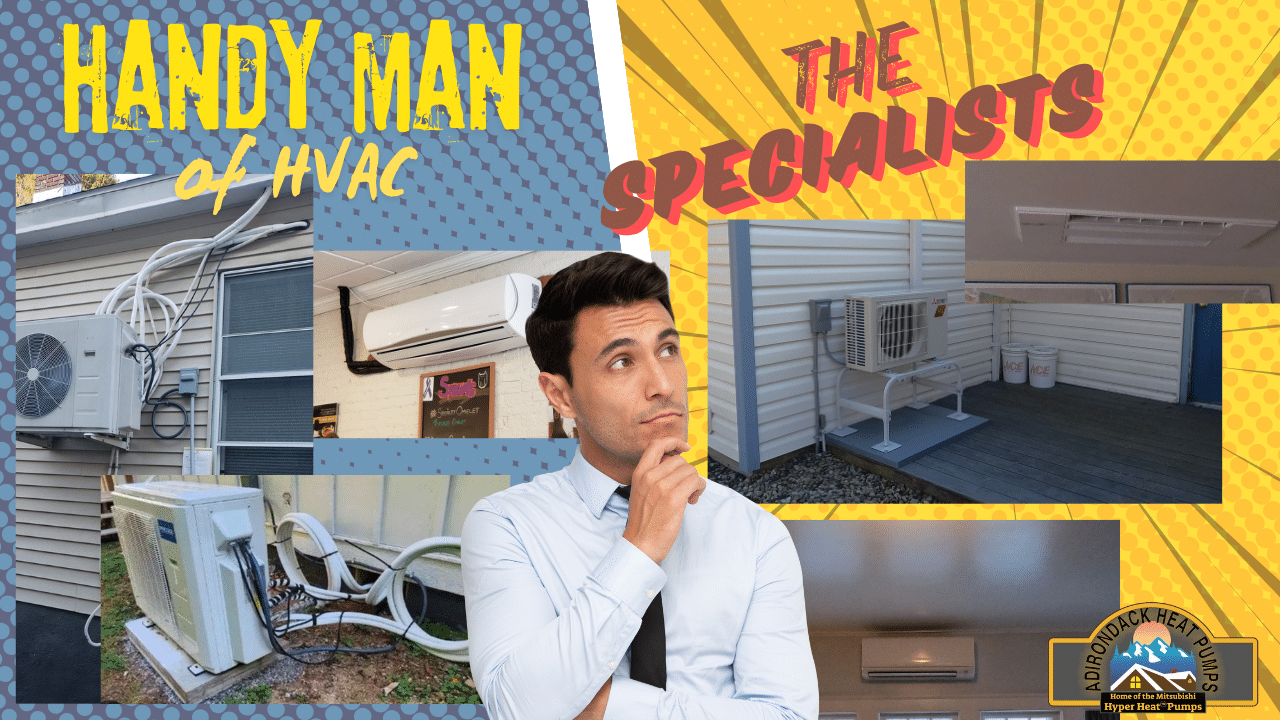
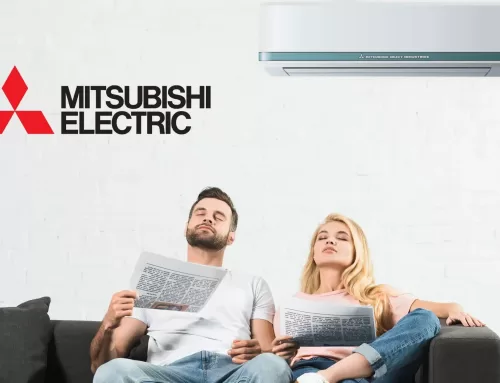
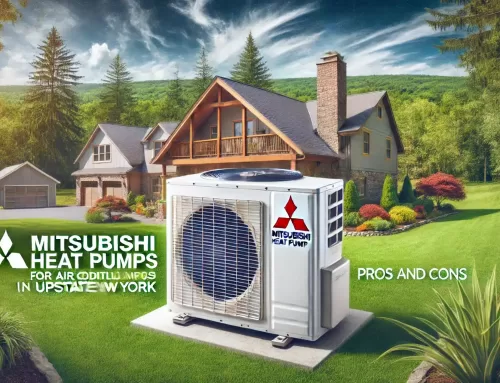
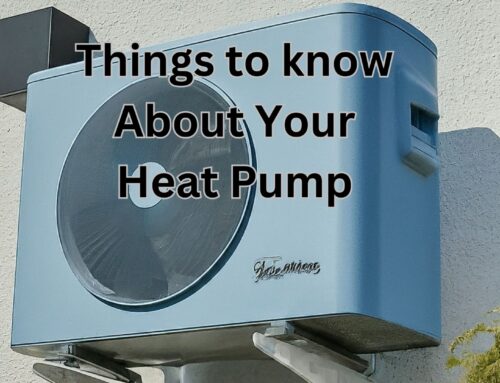
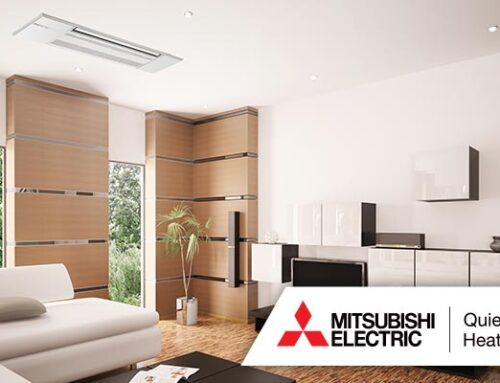
Leave A Comment